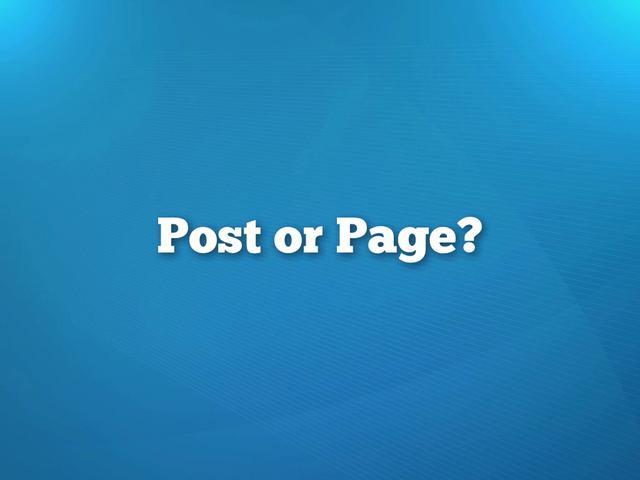One of the things that many beginners find really confusing when creating new content for their website is in using WordPress posts and pages.
Posts and pages are two different ways you can publish content on WordPress. They seem to look the same on the website, but both content types function very differently.
To understand how to use each content type better, let’s look at some of their similarities and differences.
|
WordPress Posts |
WordPress Pages
|
| Updated on a regular schedule | Remains static unless updated |
| Can display date and time stamp | Does not display date and time |
| Displayed on blog index page from newest to oldest | Left out of the main timeline of the blog |
| Can be archived by the month and year | Pages do not get archived |
| Included in the RSS feed, notifying subscribers when new posts are published | Excluded from the RSS feed |
| Can be organized using categories and tags | Can be organized in a hierarchal structure
|
| Cannot use custom templates
|
Can make use of custom templates for a unique design
|
| Allows reader to leave comments and start conversations | Not intended for commenting so comment section is turned off by default |
| Can be shared in social media using social sharing plugins | Does not allow social sharing buttons |
You need to use both content types to publish different types of content on your website. But when should Posts be used and when should Pages be used?
Use WordPress Posts:
- To write up blog posts
- To write new content on a regular schedule to keep your site fresh
- To make your content more shareable and social
- To organize your content by category
Use WordPress Pages:
- For writing one-off content, such as your About page, Services page or Contact page
- For content that does not need to be updated on a regular schedule
- For content that isn’t shareable or does need to be discussed
- For content that is organized in your navigation
It’s important to know when to use WordPress Posts and Pages so you can keep all your content organized. Search engines like content on any website to be organized as this can greatly help them crawl your site and index your content easily, which, in turn, can greatly help your site rank high in search results.
